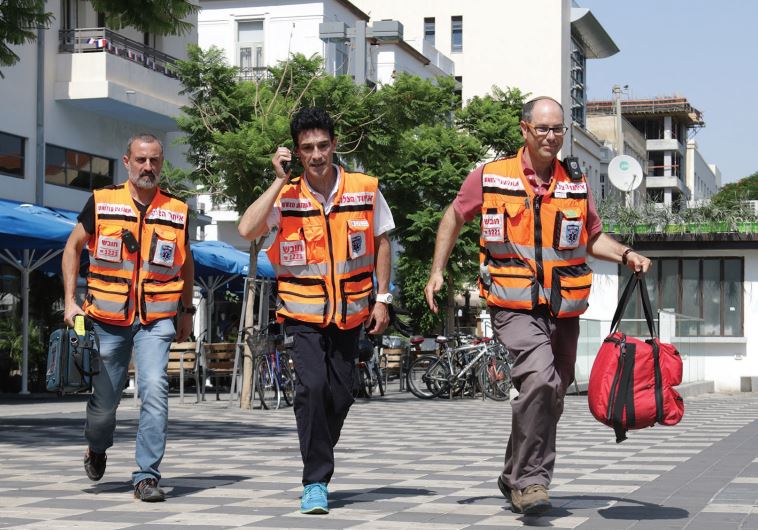American Heart Association picks United Hatzalah as training partner
United Hatzalah volunteers in the free service arrive at the scene within three minutes.
 UNITED HATZALAH medics are ready for duty around the clock(photo credit: UNITED HATZALAH)Updated:
UNITED HATZALAH medics are ready for duty around the clock(photo credit: UNITED HATZALAH)Updated: